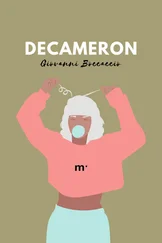“You did, brother. You said ‘implore.’ I second the motion.”
Binford now stood. He placed both hands palms down on his desktop. “I do take offense, Mr. Cantor. I take offense because the board doesn’t make its rulings arbitrarily. Its members think long and hard about how a film will be received by the movie-going citizens of this movie-loving town.”
“Two years ago,” pursued the man named Cantor, “you banned Brewster’s Millions because you said that the servant character played by Rochester — by Eddie Anderson — you said he was treated too well. What does that mean, Mr. Binford? ‘Treated too well’? I saw the picture in West Memphis, and this is by no means a remake of The Admirable Crichton .”
“I don’t know The Admirable Crichton . Does it have Niggras in it?
“No, it doesn’t. You’re missing my point.”
Mr. Cantor’s partner in logic took up the cause: “Last year, Mr. Binford, your busy Censor Board cut Lena Horne’s number out of Ziegfeld Follies .”
“The whole setup was unpalatable, sir. She was fighting with another Negress over a man in a bar.”
Seale sighed. “You banned Curley because of harmonious interaction between colored children and white children. You snipped out Miss Horne for a reason that goes to the opposite extreme. I submit to you, Mr. Binford, that you don’t much care to see colored people appear in white movies in any context at all, other than perhaps a wholly subservient one.”
Binford nodded. “There is no good reason to put a Niggra in a Hollywood picture, unless the Niggra’s wearing an apron or toting a bale.”
“And acting appropriately servile,” added Seale.
“I didn’t make the world the way it is, gentlemen. We have black folk and we have white folk, and by the way, I happen to like Niggras. I’ve got a soft spot in my heart for old Niggras especially. They remind me of the servants we had down in Duck Hill. But I don’t believe in a mingling of the races and I don’t believe in putting forth this mendacious idea that Niggras have the smarts or the innate capacity to be anything more than domestics and day laborers.”
“I think the lawyers down at the NAACP might beg to differ. By the way, Mr. Binford, is Charlie Chaplin colored?”
“Now don’t you go and get my temperature up about that limey guttersnipe — a demonstrable enemy of American decency and virtue.”
“Mr. Binford, you don’t even allow cowboy pictures to play in Memphis if there’s a train robbery somewhere in the story.”
“Train robberies are frightening to young children. And I should know; I was on the receiving end of one that turned deadly when I was a boy. There isn’t a child in this city who’d derive benefit from seeing a Western picture with a vicious train robbery in it.”
The old man pounded his fist to drive home his point. It was an anemic act and hardly made a sound.
Binford’s two visitors passed a look of defeat between them.
“When do you plan to retire, Mr. Binford?” asked Mutt.
“Next year, perhaps?” sought Jeff.
“Now you’d just like that, wouldn’t you?” retorted the old man, easing back down into his chair. “You’d like me to remove myself as guardian of the morals of the citizens of this fine town, so that you can bring communist pictures in here and pictures with chesty harlots like that there Jane Russell piece of garbage, pictures where gunslingers go about their nefarious business of robbing trains and shooting innocent railroad clerks and giving them lifelong nightmares. You’d like that pretty darn well, now wouldn’t you ?”
“No, Mr. Binford,” said Seale evenly. “We’re just trying to make an honest buck in this town — that’s all. And you, sir, have been tying our hands mighty tight.”
“That’s what the miscreant did who robbed the train I was clerking on. But I didn’t dissolve into a Jell-O cup of quivering cowardice, no-siree. I held my chin up high and looked my captors brazenly in the eye. And I can tell you as sure as I’m sitting here that from the looks of those black-eyed felons, they had Niggra blood, all right. No doubt about it.”
The two men walked away from the refulgent white Columbia Mutual Tower, built by a white man who had done well in the insurance game. Their stroll took them down Main Street and to their respective movie houses, where all the best pictures of the day played, except for those that featured Charlie Chaplin and train robbers and any character of African American descent who didn’t know his place.
Neither man registered the passage of a garbage truck moments earlier. There were two men in the cab. The driver was a young white man. Riding shotgun was an African American man. His name was Tom Lee. The next year Tom would retire from the job he had held for over twenty years — the first African American to be hired by the City of Memphis’s Department of Sanitation. He would be stricken with cancer and die in 1952. Posthumously, he would be honored by having a downtown park named for him. Tom Lee was a hero to the people of the city of Memphis. He had rescued thirty-two people — both white and black — from the turbulent waters of the Mississippi when a steamboat, the M.E. Norman , flipped freakishly on its side in 1925.
In the last two years of Mr.Binford’s life, he would look down upon that park from the pinnacle of his glistening white tower — look down and scratch his hoary head.
To think that they’d named a whole park after a Niggra! It mystified the hell out of him.
1948 HAUNTED IN CONNECTICUT
Ramona found her husband looking out the window at the end of the couple’s narrow galley kitchen. He had pulled a chair in from the dining room and sat there in his bed robe, the window sash raised, a cool waft of night air stroking his face with delicate, invisible fingers.
“Dana?” she said softly in the darkness.
He didn’t start. He had already felt her presence, felt her standing there watching him, worrying about him. Somewhere along Second Avenue a taxi honked its horn. Somewhere in the courtyard that separated his boxy monolithic apartment building from its boxy monolithic neighbor one block north, someone was playing a radio. Or perhaps it was the noisy jukebox in the bar on Second Avenue, where Dana sometimes stopped to get a drink on the way home from his job as an advertising copywriter.
“Dana, dear, would you like some warm milk?”
Dana Darby shook his head.
“Come to bed, then. We’ll get everything worked out with the architect. I told you, it’s not worth losing sleep over.”
“I wasn’t thinking about the new house.” he said.
Ramona Darby knew not to ask. She knew that her husband rarely shared his war memories with anyone, even the person he was closest to in the world. They were too painful. Dana was generally good at keeping them at bay during the daytime. It was during the quiet, empty hours of the night that they crept back in the form of dark, intrusive recollection, or returned in full assault in the form of brutal dreams.
Bataan. The death march. The camps.
Dana Darby liked to pull a chair up to the window in his kitchen and stare out into the night, to behold the twinkling, geometric cityscape of Upper Eastside Manhattan, its steel and masonry little resembling the Philippine jungle of his nightmares. He liked to remember that in large American cities like New York, crime is generally an isolated act of selfishness perpetrated for want of money or the need for illegal drugs. Or it is an expression of jealous rage or interpersonal rivalry. If there is an element of inhumanity to it, it is nothing compared to that which Dana had seen and experienced first hand on the Bataan Peninsula. What happened to his fellow POWs, to the interned Jews of Europe, to all the victims of that war only recently ended left him with a gaping wound in his soul that would not heal. That man was capable of such unconscionable acts against other men. Against women. Against defenseless children. It was difficult even to contemplate.
Читать дальше












